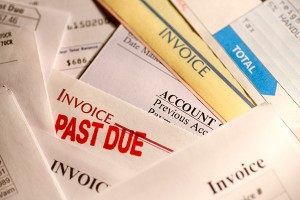 If you owe a debt and stop making payments eventually the creditor will send you an offer to settle the debt. These agreements usually offer to settle the debt for less than what is owed on the contract. Sometimes the settlement offer is much less than the actual amount owed. These offers usually require that the debtor pay a lump sum payment to the creditor in exchange for a release. Sometimes the creditor will let the debtor make payments but without reducing the balance as much as they would with the lump sum payment.
If you owe a debt and stop making payments eventually the creditor will send you an offer to settle the debt. These agreements usually offer to settle the debt for less than what is owed on the contract. Sometimes the settlement offer is much less than the actual amount owed. These offers usually require that the debtor pay a lump sum payment to the creditor in exchange for a release. Sometimes the creditor will let the debtor make payments but without reducing the balance as much as they would with the lump sum payment.
There are a few things that should be considered before settling a debt. First, determine the tax consequences of settling the debt. When a portion of debt is cancelled that amount is reported to the IRS as income. The debtor must pay income tax on the cancelled debt. In addition, the cancelled debt may increase tax liability for the debtor’s entire income. If the debtor doesn’t file a tax return because they do not earn enough income then the cancelled debt may have no effect on their tax liability.
Second, it is very important to carefully review the terms of the release. Be sure that it is a full release and that the unpaid portion cannot be sold to third party creditors. Does the release say that the debt is forgiven and fully released or that this specific creditor will not collect the debt? Those are two very different things.
In the long run it may be cheaper to file bankruptcy. Bankruptcy may allow you to discharge your debt with no payment to creditors. In addition, debts discharged in bankruptcy are not treated as income for tax purposes. Chapter 7 bankruptcy cases last three to four months, which is quicker than payment plans for repaying debt. Filing bankruptcy may also allow your credit score to recover faster than if you simply settle debt.